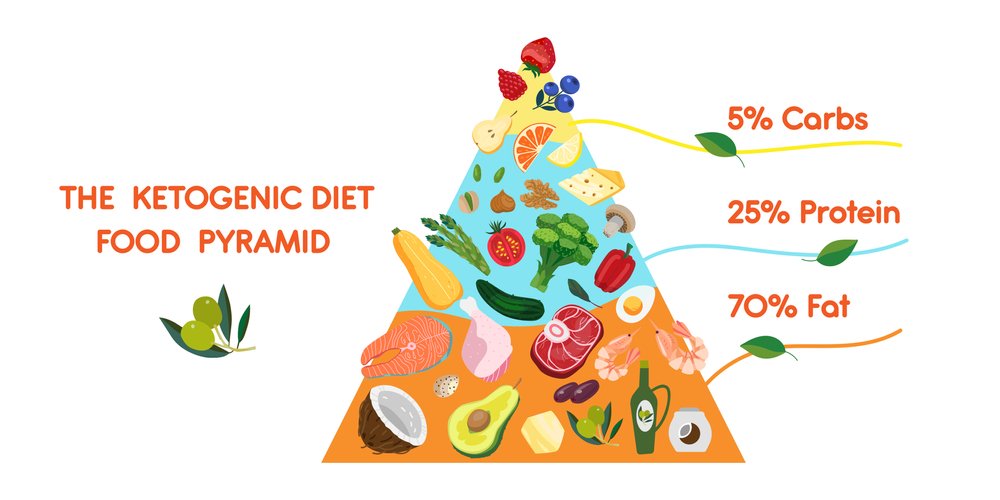Can we say that the keto diet is unequivocally beneficial and can be recommended to everyone? Are there any contraindications?
Naturally, the keto diet is not suitable for everyone and has its limitations. It is categorically not recommended for people with severe cardiovascular diseases, adrenal, renal, and hepatic insufficiency, various confirmed enzyme deficiencies, as well as pregnant and breastfeeding women.
There are also relative contraindications. These include gallstone disease, chronic pancreatitis, and other gastrointestinal disorders, post-cholecystectomy condition, Gilbert’s syndrome, familial hypercholesterolemia, urolithiasis, gout, and diabetes, especially type 1 diabetes. In these cases, the keto diet can be used, but strictly under the supervision of a doctor who will monitor specific parameters in each particular case.
For which diseases can the keto diet be recommended?
The keto diet is unequivocally recommended for epilepsy, especially when it is resistant to medication. This is the condition for which the benefits of the keto diet were first discovered. Other indications for the keto diet include obesity, metabolic syndrome, carbohydrate metabolism disorders (prediabetes), lipid metabolism disorders (hypercholesterolemia, dyslipidemia, hypertriglyceridemia), Parkinson’s disease, Alzheimer’s disease, multiple sclerosis, cancer, and various inflammatory autoimmune diseases. The keto diet is also used by healthy individuals, particularly athletes.

From what age can the keto diet be used?
Opinions among scientists are divided on this matter. The World Health Organization (WHO) does not recommend the use of the keto diet before the age of 18. However, there are proponents of the keto diet who believe that there are no age restrictions for this type of nutrition, and it can be started even from infancy, especially in cases of epilepsy or degenerative diseases of the central nervous system. Observations by doctors indicate that discontinuing the keto diet can exacerbate and worsen the course of epilepsy in children.
Can this style of nutrition be applied long-term?
It can be, as long as no side effects or contraindicated conditions develop. On a keto diet, it is important to monitor vitamin and mineral status and to supplement, at least periodically, with the necessary micronutrients and vitamins that are typically obtained from plant-based foods: water-soluble vitamins, especially B and C vitamins, and dietary fiber.
What are the potential negative health consequences and why might they occur with, let’s say, overuse of this diet?
The most serious complication of this diet is ketoacidosis, which is the excessive accumulation of ketone bodies in the blood. This can lead to coma and even death, and it is more likely to develop in individuals with diabetes, particularly type 1 diabetes.

Another negative effect is the “keto flu.” This condition is characterized by weakness, malaise, increased fatigue, dizziness, poor concentration, headaches, reduced productivity, increased hunger, various sleep disturbances, mood changes, increased irritability, increased thirst, frequent urination, palpitations, and cramps. This can occur at the beginning of the diet change. To mitigate these effects, it is recommended to gradually reduce carbohydrate intake to the target level rather than excluding them abruptly. It is important not to starve but to eat until full, consuming only allowed foods, and to drink at least 2 liters of water per day, preferably with added salt. Physical activity should be limited on days of poor well-being.
Additionally, there is an increased risk of kidney stone formation, exacerbation of gallstone disease and pancreatitis, cardiovascular diseases, and constipation due to reduced dietary fiber intake.



Leave a Comment